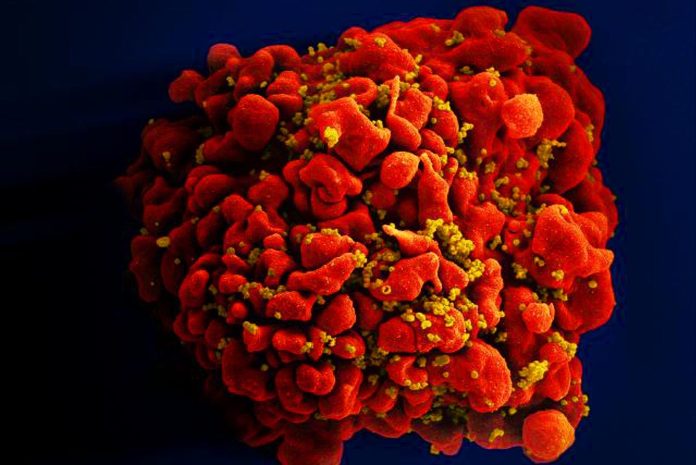According to a new UCLA study, HIV-infected adults may develop age-related diseases by more than 14 years earlier than their uninfected peers. The findings were published in the online journal PLOS ONE.
The study authors note that individuals undergoing treatment for HIV are at increased risk for earlier onset of age-related illnesses such as some cancers, kidney disease, frailty, osteoporosis, and cognitive disorders; however the question arises whether these problems are due to the virus that causes AIDS or the treatment. To address this issue, investigators from the UCLA AIDS Institute and Center for AIDS Research, and the Multi-Center AIDS Cohort Study (MACS) examined whether the virus induces age-associated epigenetic changes (changes to the DNA that in turn lead to changes in expression of gene levels without changing the inherited genetic code). These alterations affect biological processes and can be generated by environmental factors or by the aging process itself.
“While we were surprised by the number of epigenetic changes that were significantly associated with both aging and HIV-infection, we were most surprised that the data suggests HIV-infection can accelerate aging-related epigenetic changes by 13.7 to 14.7 years,” noted Beth Jamieson, PhD, a professor of medicine in the division of hematology/oncology at the David Geffen School of Medicine at UCLA, director of the UCLA Flow Cytometry Core, and one of the study’s senior authors. She added, “This number is in line with both anecdotal and published data suggesting that treated HIV-infected adults can develop the diseases of aging mentioned above, approximately a decade earlier than their uninfected peers.”
The investigators examined white blood cell samples stored by the UCLA site of the MACS, which, since 1983, has been collecting biological samples as well as clinical, behavioral, and socio-economic data from HIV-infected men and men at risk for infection. They selected the samples from both young (20 to 35 years old) and older (36 to 56 years old) adults who at the time had not begun antiretroviral therapy (ART). The researchers divided each age group into 12 HIV-infected and 12 age-matched HIV-uninfected samples for a total of 96 samples. They then extracted the DNA from the samples and analyzed the DNA for epigenetic patterns.
Dr. Jamieson and her colleagues compared epigenetic patterns, which are strongly associated with aging, to changes that occur during HIV infection and found significant overlap in the two patterns. They used those overlapping patterns to estimate the biological age of HIV-infected, untreated adults, and found that, at the epigenetic level, the adults appeared to be approximately 14 years older than their chronologic age. Dr. Jamieson explained that the cells they used were taken from men before they began receiving ART. The findings showed that HIV-infection can accelerate aging-related epigenetics; however, the investigators cannot determine at this point whether ART restores those patterns to be more age-appropriate or whether the drugs themselves cause additional changes.
The authors note that, taken together, “these data suggest that HIV-1 infection does accelerate some aspects of aging and that general aging, and HIV-1 related aging, work through at least some common mechanisms. These results are an important first step for finding potential therapeutic approaches to mitigate the effects of both HIV and aging.”















